Journalist and social entrepreneur Nickolaus Bauer puts his money where his mouth is. After writing a story on Ponte in 2012 (once the city's most notorious building, and now a stable residential block), he promptly decided to leave his digs in Maboneng and move to an apartment on the 51st floor of this iconic building, where the city views are utterly spectacular. In the same year, he co-founded Dlala Nje, now headquartered in Ponte, to challenge perceptions of the City Centre and provide opportunities for the city’s youth.
Dlala Nje runs programmes at the community centre for children and young adults who live in the towering block that is Ponte, funding these with a tour and experience offering. They offer everything from homework support to recreational activities and work with volunteers to provide these services. We attended the first tour Dlala Nje ever hosted and have watched this organisation grow over the past 10 years. To date, Dlala Nje has taken more than 30,000 people on tours through Hillbrow and positively impacted the lives of several hundred Joburg children. The Ponte apartment that Bauer moved into in 2012 today serves as Dlala Nje’s skyline venue, where they have sundowners and other prime events, all with show-stopping views of the city below.
On top of being a social impact entrepreneur, Bauer is also an award-winning journalist and former civil servant, and ahead of South Africa’s 2024 elections, he has written a book titled South Africa's Easy Election Guide: Who To Vote For in 2024? If you want to make an educated decision on who to vote for in our general elections come Wed, May 29, 2024, but don’t plan on poring over the manifestos of the numerous contesting political parties, Bauer has done the heavy lifting for you. Read on to find out more about what fuels his interests.
"The indescribable force that powers the City of Gold and keeps its six-million inhabitants equal parts engaged and on edge. Addicted to the real possibility that catastrophe and triumph may be lurking just around the corner. It is addictive, the spirit of Johannesburg."
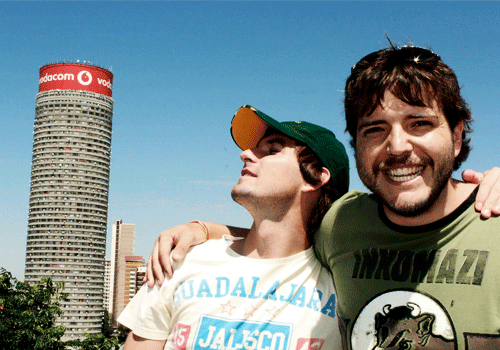
Photo: Supplied.
One of your most recent projects is South Africa's Easy Election Guide: Who To Vote For in 2024. Tell us about this.
This book is about getting South Africans to turn up and vote and make educated choices when they do so. It’s a simple and accessible guide to 16 of South Africa's political parties and their standpoints on key issues in South African society. It was made possible by the Konrad Adenauer Foundation and has also been made into a podcast in partnership with Scrolla Africa.
"Rights – civil or otherwise – do not disappear in an instant. Like muscles in the human body, if left unused, they are slowly weakened over time, until they are incapable of performing the function they were intended to without serious therapy."
A large proportion of South Africans surprisingly claim to have no interest in politics or to be bored or frustrated by the country’s politics. Politics affects every aspect of our lives in South Africa, whether we know it or not, regardless of our feelings towards it. Unfortunately, South Africa’s democracy is suffering from a growing apathy, with fewer eligible voters wanting to express themselves at the ballot box. The regression is clear with a voter turnout of almost 90% at South Africa’s first democratic elections in 1994 dropping down to just 65% in 2019. I have never properly understood why more South Africans do not exercise their right to vote. However, I am hoping that this book provides readers with an easily accessible resource to help them choose where to leave their mark on election day should they choose to do so. You can download it for free here.
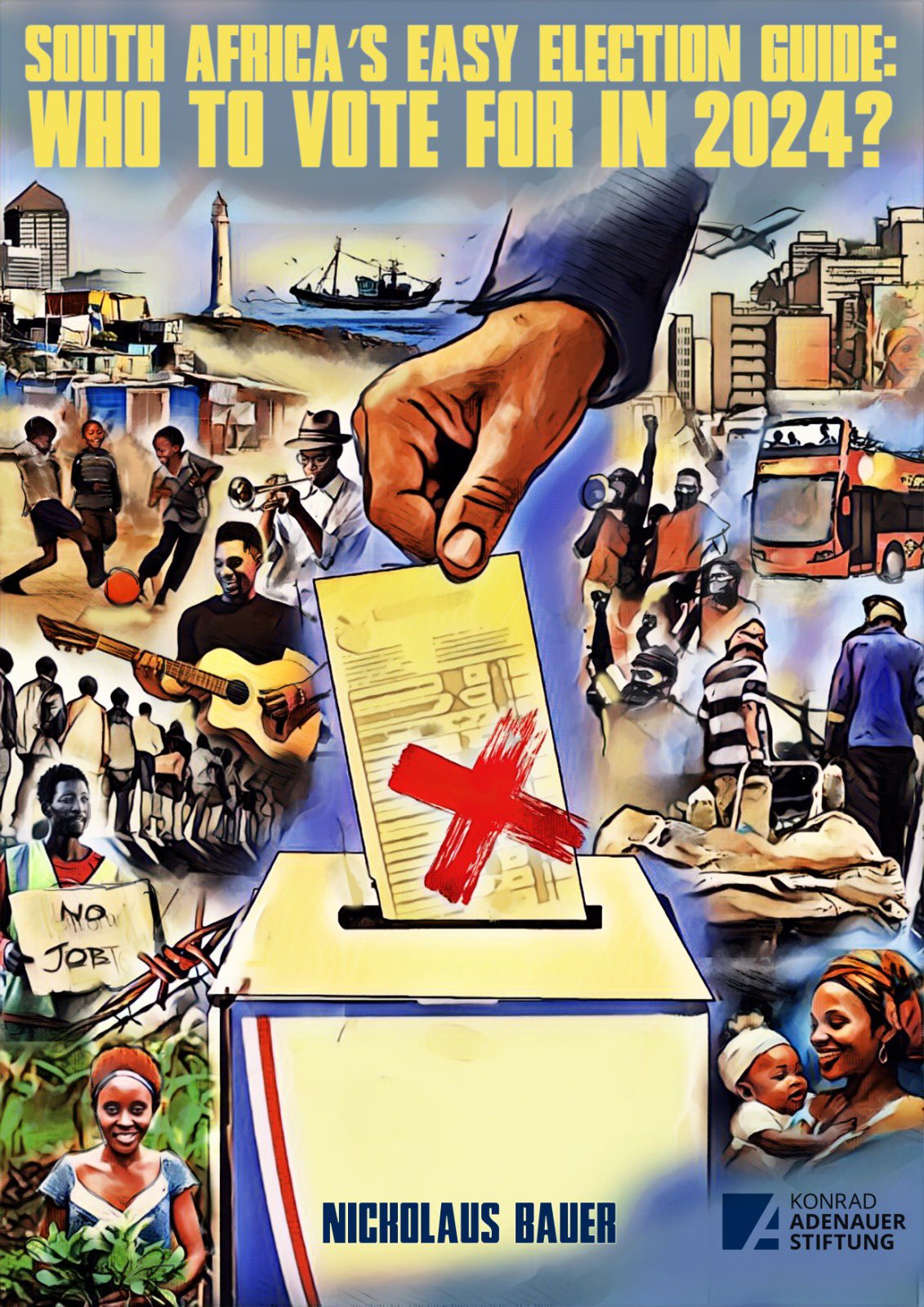
Why would you urge South Africans to go out and vote on May 29?
South Africa’s democracy is still firmly in its developmental phase, and consistent and high voter turnout would indicate an engaged citizenry that seeks to have a say in their country’s future. Rights – civil or otherwise – do not disappear in an instant. Like muscles in the human body, if left unused, they are slowly weakened over time, until they are incapable of performing the function they were intended to without serious therapy. I did not choose this analogy lightly or for a comical effect. Many failed states first embarked on the slippery slope to oblivion and hardship for their people with the erosion of democracy and a complete lack of interest in voting amongst the electorate, with electoral cycles becoming nothing more than a rubber stamp for the governing class. Citizens have the power to change that by voting and encouraging those around them to do the same.
You recently hosted a panel discussion supported by Johannesburg In Your Pocket, in which our editor participated, with various parties contesting the upcoming elections, asking the question, "Can tourism save South Africa?" What were the key takeaways from this?
Tourism is one of the key issues in South African society covered in my election guide. It is truly one of the unsung heroes of the South African economy, with one job being created for every 10 tourists that visit the country. It seems like a no-brainer to me to support an industry that can provide employment in the world's most unequal society with the highest rate of sustained unemployment. The panel discussion was an opportunity for political parties to share their policies on tourism and how they would support the sector. There is a broad agreement that tourism needs support from a safety and infrastructure perspective, but there is a great deal of confusion over how that is to be achieved.
"Politics affects every aspect of our lives in South Africa, whether we know it or not, and regardless of our feelings towards it."
You co-founded Dlala Nje almost 12 years ago. For those who are not familiar with it, what is it?
Dlala Nje is a social enterprise founded in October 2012 and, in a nutshell, challenges perceptions and creates opportunities in the heart of Hillbrow. We do this through running inner-city immersions and experiences in our city’s most misunderstood areas (if you haven't yet, check out the Ponte City Challenge). These immersions and walks have allowed us to build and run a community centre that provides a safe space for the area’s children and youth to enjoy the things so many middle-class kids take for granted – somewhere quiet to do their schoolwork; a reliable internet connection; someone to help with their homework; and extra murals like soccer, yoga, or music. The initiative was co-founded by me and Michal Luptak and is now run by Grant Ngcobo – a 20-something Joburger who was there as a Dlala kid on day one when we opened.
What has been a highlight of this initiative?
We've had many over the years! Jazz legend Abdullah Ebrahim was one of our first visitors in 2012 and we hosted [then] German president Frank-Walter Steinmeier in 2018. But the most gratifying highlights have to be the over 30,000 visitors we've taken on tours, the several hundred children's lives we've positively impacted, and the fact the initiative exists beyond its co-founders, now being run by one of the original beneficiaries.
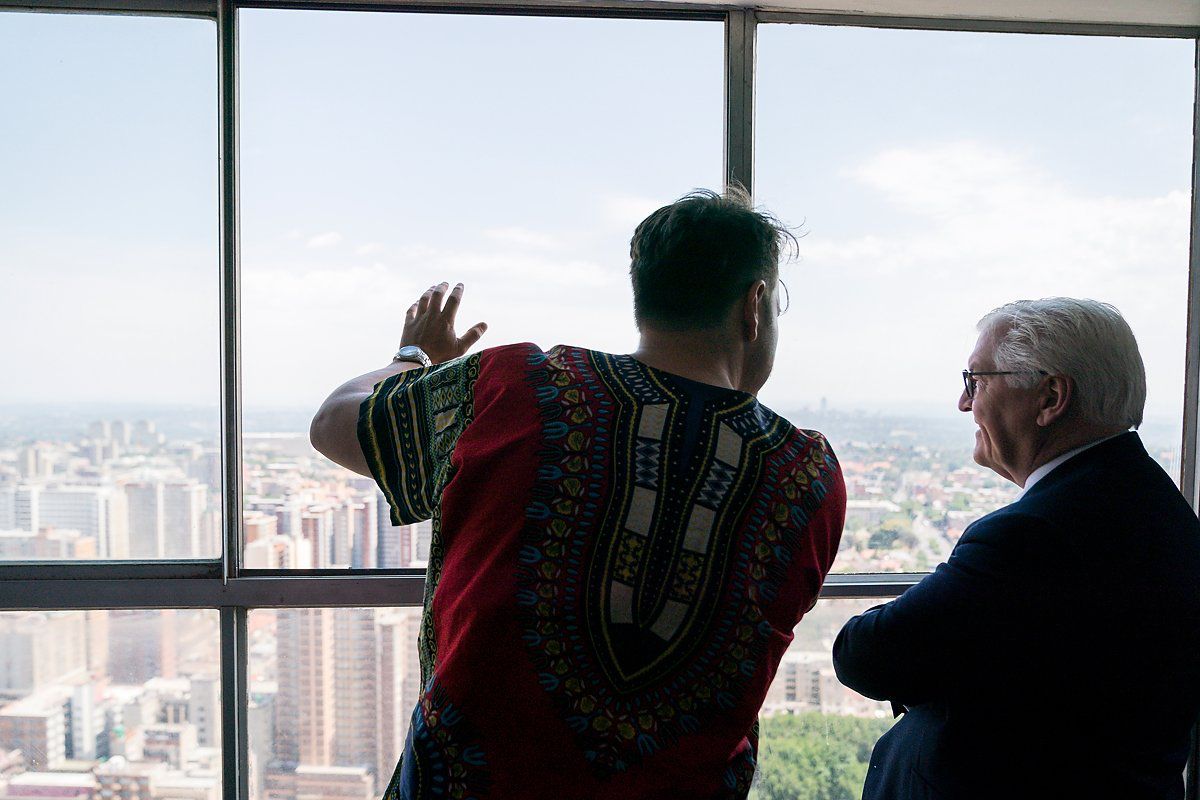
What brings you to Joburg or what makes you stay here?
It’s that Joburg thing that hangs below the haze of smog-laced sunshine. That resonates amongst the chorus of traffic and the haggling in boardrooms and on sidewalks. That keeps on flowing both night and day. Pervasive on the dusty streets of Soweto. Probing from the leafy avenues of Bryanston to the corporate fortresses in Sandton and the hijacked relics in Hillbrow. Engulfed in the competing realities of the world’s most unequal society, thrives the thing that rests so comfortably within the complex entanglement of poverty and riches – where ambition and desperation live joined at the hip. The indescribable force that powers the city of gold and keeps its six million inhabitants equal parts engaged and on edge. Addicted to the real possibility that catastrophe and triumph may be lurking just around the corner. It is addictive, the spirit of Johannesburg.
Home is?
The streets of Johannesburg.
What is a surprising thing people might learn about Joburg by having a conversation with you?
Johannesburg is the world's biggest city, built without a perpetual water source like a river or coastline.
"Johannesburg remains a City of Gold but not the precious metal. Its people are the true resource."
Your favourite Joburg author or favourite Joburg book?
The Bang Bang Club by Greg Marinovich and João Silva.
Your favourite Joburg suburb, and why you choose it?
Hillbrow. It’s played an integral part in the Johannesburg story and has always been the dodgy, off-the-wall place Joburgers are unnecessarily weary of.
What three things should a visitor not leave Joburg without seeing or experiencing?
Ponte, Vilakazi Street, Keyes Art Mile.
One song on your Joburg soundtrack that either is about Joburg or makes you think about this city?
Bury My Bones in Jo'burg by Naming James.
The most memorable meal you have eaten in Joburg?
Prawns and peri-peri chicken at The Troyeville remains etched in my culinary heart forever.
If you could buy one Joburg building, which would it be?
Without a doubt Ponte.
If you were the Joburg mayor for one day (average tenure) what would you change?
Enforce a law that calls Johannesburg governments from that day forward to compile public lists of three-month, six-month, one-year, and three-year targets, with clearly defined measurements of success and identification of who is ultimately responsible for each. Officials will automatically lose their jobs if they do not achieve a 75% success rate on these obligations.
Favourite Joburg label, and why?
Tshepo Jeans at Victoria Yards. He's an authentic entrepreneur who creates unique items for all his clients. I respect that.
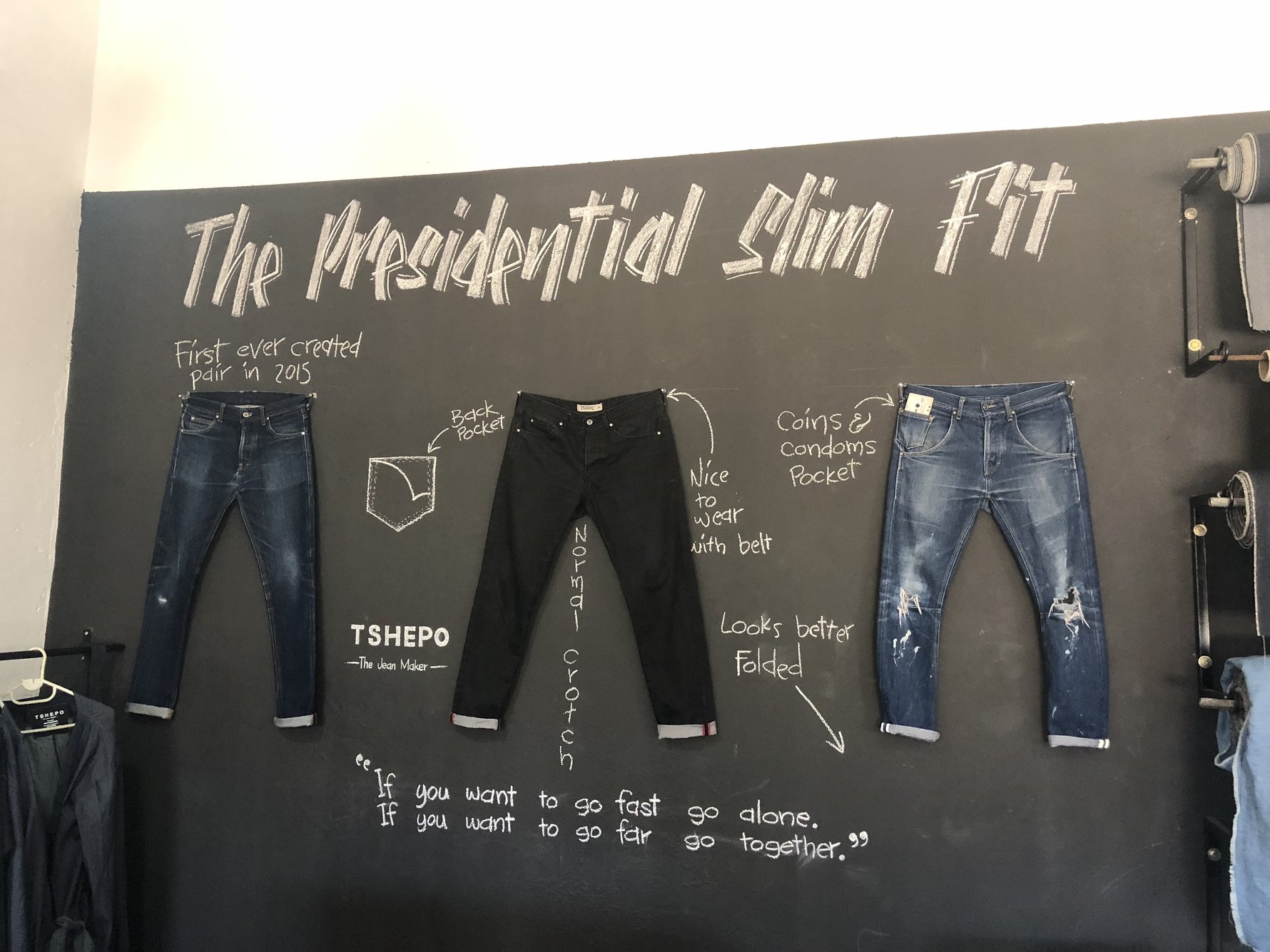
What makes someone a Joburger?
Joburgers are the ultimate time optimists. There are few people in this world who think it’s normal to cram everything that is humanly possible into a single day. Among that handful are many Joburgers.
What do you love most about Joburg?
Besides the smell of the city after it rains, I absolutely love Joburgers. Johannesburg remains a City of Gold but not the precious metal. Its people are the true resource.
What do you least like about Joburg?
Joburgers moaning about the state of the city instead of doing their bit to make it a better place.
Your number-one tip for a first-time visitor to Joburg?
Stay off your phone and absorb what's around you. Johannesburg's greatest asset is its people.
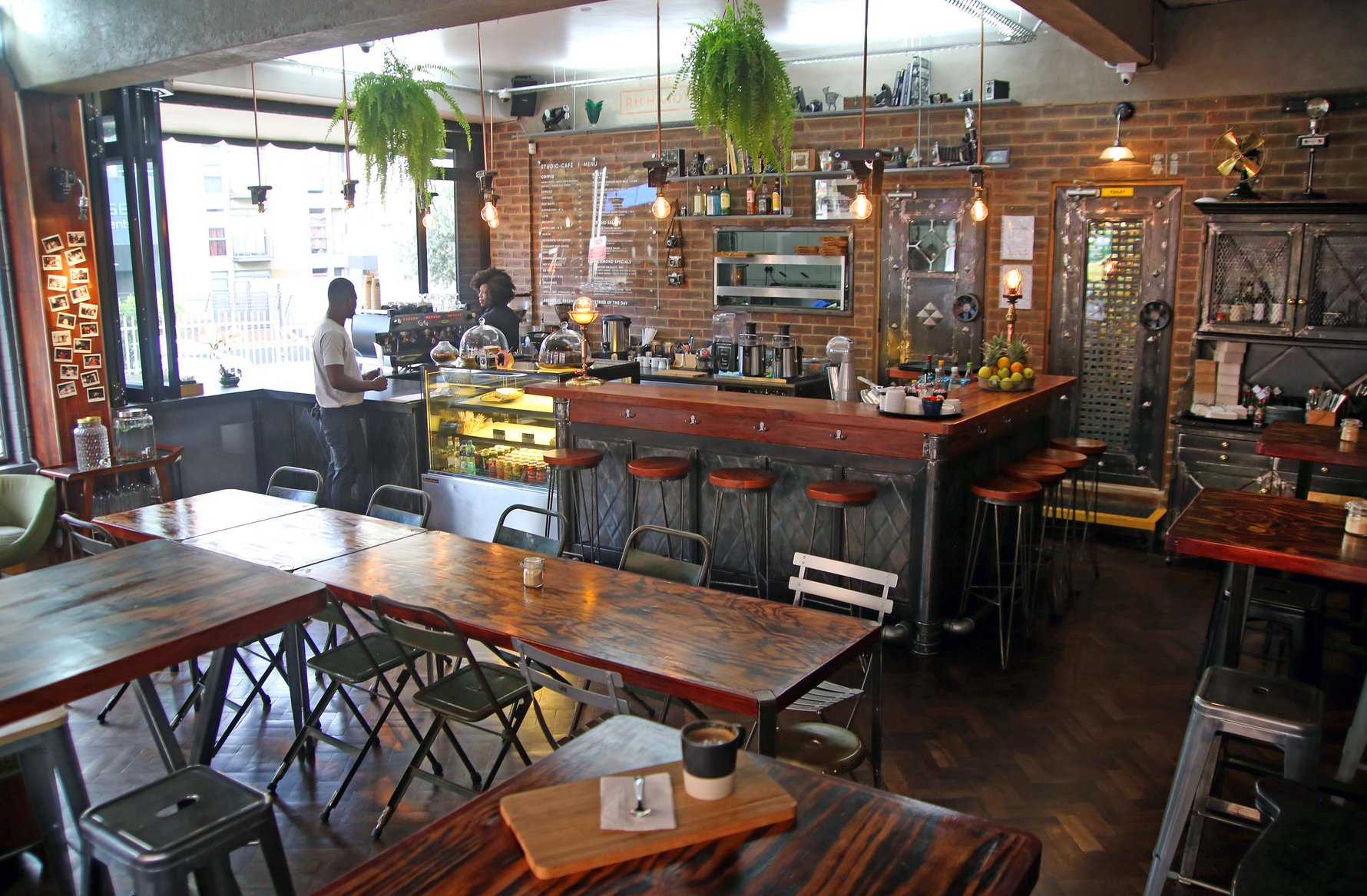
One Joburg personality whom you would honour with the freedom of the city if you could, and why?
Robbie Brozin. As the co-founder of Nando’s, he decided to keep his now globally recognised brand headquartered in the heart of Johannesburg where it all started.
The perfect weekend in Joburg includes...
Breakfast at The Richmond Studio Café, lunch at the Zoo Lake Bowling Club, sundowners at Ponte, dinner at The Troyeville, a play at the Market Theatre, a trip to Keyes Art Mile, and a walk in The Wilds and Emmarentia.
Three words that describe this city.
Desperation. Perseverance. Optimism.
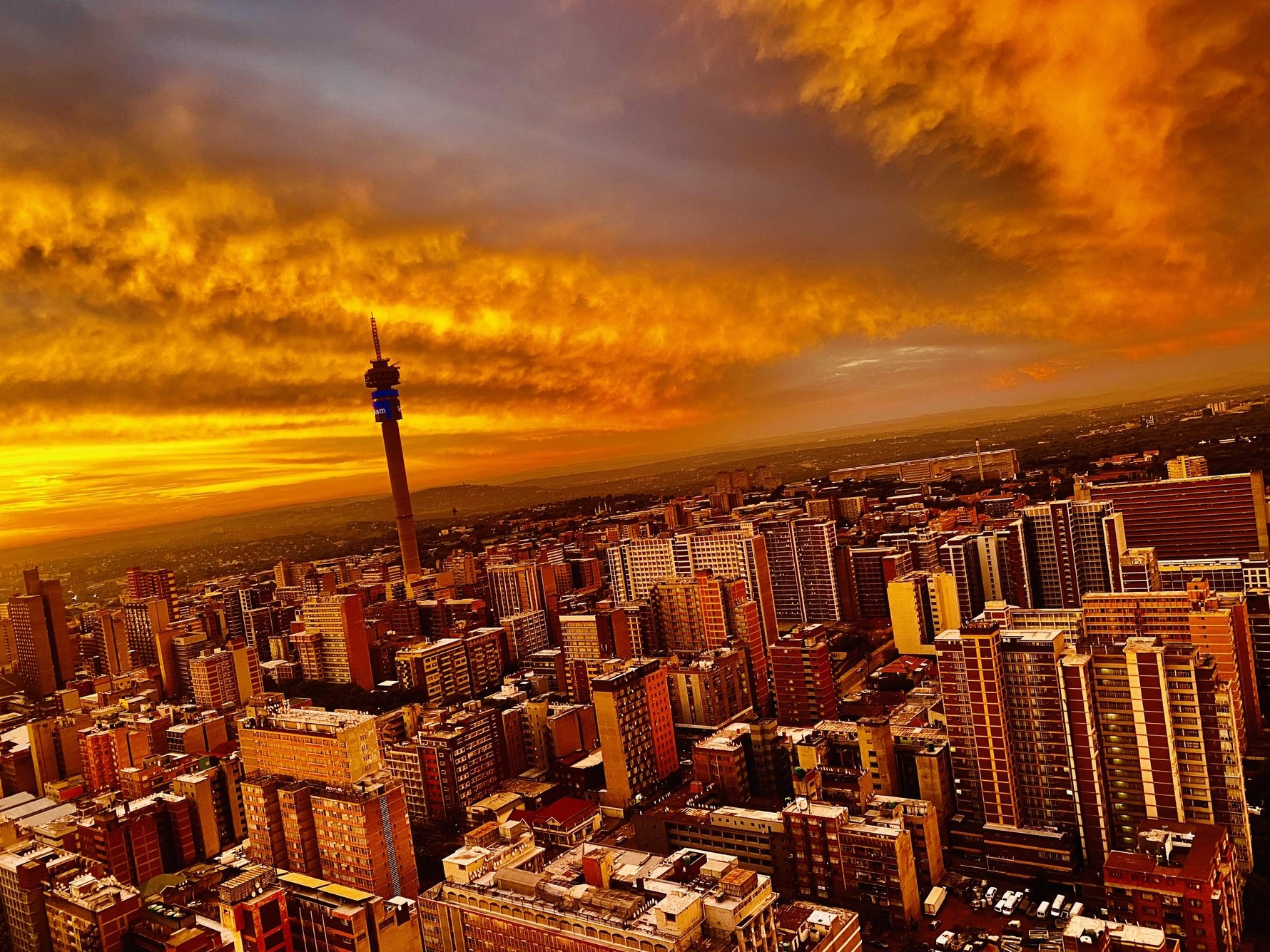
Check out some of our previous #MyJoburg interviews for more insights into the city:
#MyJoburg with S'BO GYRE, rapper and performer
#MyJoburg with Phil Thurston, Mara Lounge founder
#MyJoburg with Hugh Fraser, architect and tour guide


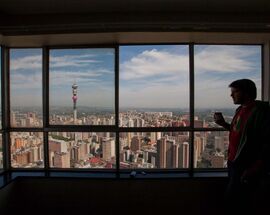
_m.jpg)
 - photo supplied_m.jpg)


Comments